A guest post by Ally Dowds, a Health & Human Services Research Specialist at the Boston Public Library.
Last Updated April 4, 2023. Please see this Research Guide instead. Due to the rapidly changing status of the COVID-19 coronavirus, parts of this post may be out of date. For the latest information, please visit the Centers for Disease Control’s coronavirus page. The Massachusetts Department of Public Health's coronavirus page and the Boston Public Health Commission's coronavirus page will be kept up-to-date and will include location-specific information you may need to know. The City of Boston press releases regarding COVID-19 are also available.
The BPL has separate posts on COVID-19 vaccine resources and how to evaluate information in the news and social media about the virus.
We have put together a list of resources below from reputable organizations that can provide you with up-to-date information.
Helplines:
- Sign up for text message alerts: Send COVIDMA to 888-777/Envíe COVIDMAESP al 888-777
- Call 2-1-1 or use live chat for non-emergency questions and help
- Nursing Home Family Resource Line/617-660-5399, 9 a.m.-5 p.m., 7 days a week.
COVID-19 Testing in Massachusetts
Get tested if you have COVID-like symptoms, have traveled or been in large gatherings, are at high risk for complications from COVID-19, or are a close contact of someone with COVID-19.
COVIDtests.gov
Every home in the U.S. is eligible to order 4 free at-home COVID-19 tests. The tests are completely free. Orders will usually ship in 7-12 days.
What is COVID-19?
According to the Centers for Disease Control and Prevention, the coronavirus disease 2019, or COVID-19, causes respiratory illness in people. The virus was first reported from Wuhan, China, on December 31, 2019, and was declared a global health pandemic by the World Health Organization on March 11, 2020. Click on the organizational links below for information on symptoms, testing information, prevention and coping methods, and the most recent updates on state and national statistics and response.
Websites:
Centers for Disease Control and Prevention (CDC)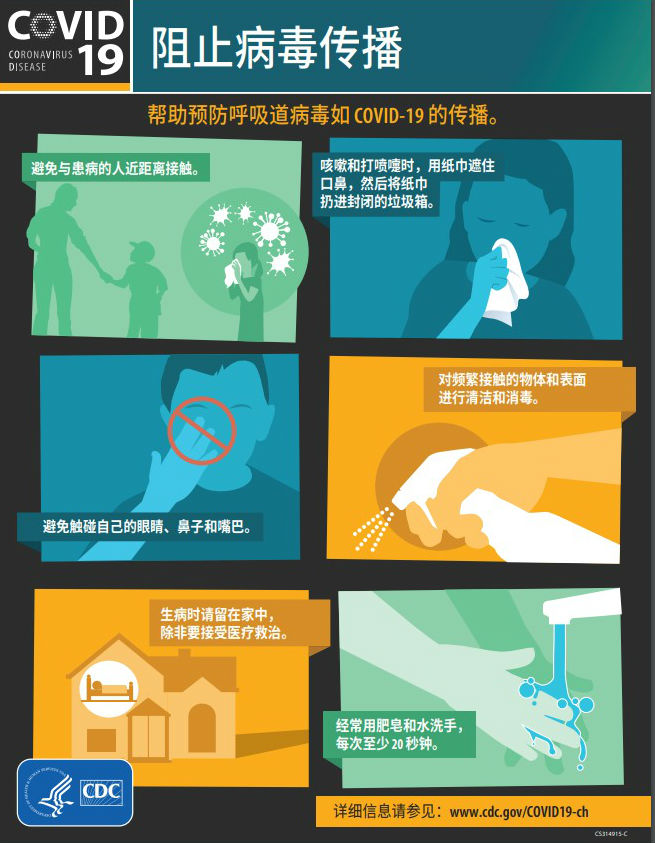
The CDC is a federal public health institute of the United States. It offers current information about:
- Isolation and precautions for people with COVID-19
-
Prevention and treatment
-
Information for populations who are at higher risk such as people with certain medical conditions, people with disabilities, and people experiencing homelessness
The World Health Organization (WHO)
The WHO provides:
- Advice for health workers
- Instructional videos, advice for the public, and downloadable posters and graphics
- Tips for getting your workplace ready
- Vaccine Explainers and much more
It also features myth buster graphics such as the one below to stop the spread of misinformation, that put people and their communities at greater risk.
Johns Hopkins University of Medicine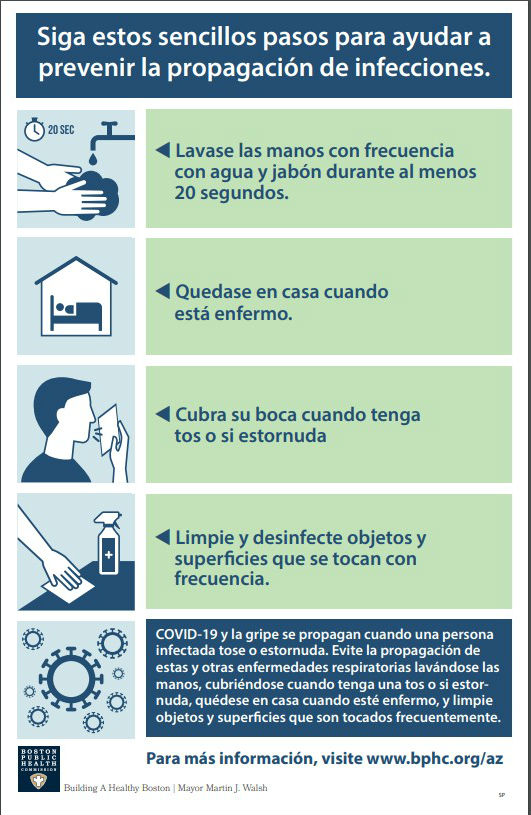
Johns Hopkins experts in global public health, infectious disease, and emergency preparedness have been directly involved in the international response to the COVID-19 pandemic. Learn more about:
- Q&A about the booster shot
- Guidance from Johns Hopkins about social distancing, opens a new window
- Listening to episodes from its Public Health On Call,, opens a new window podcast
Massachusetts Department of Public Health (DPH)
For the latest on monitoring cases in Massachusetts, the DPH has a section on quarantine and monitoring. This state government website also includes:
- Information about personal protective equipment (PPE), testing, and vaccine distribution
- COVID cases by city/town
- Information about testing for COVID-19 in Massachusetts
- Printable fact sheets available in various languages
Boston Public Health Commission (BPHC)
BPHC is in daily communication with the CDC, Massachusetts DPH, City departments, and community partners. Its website provides: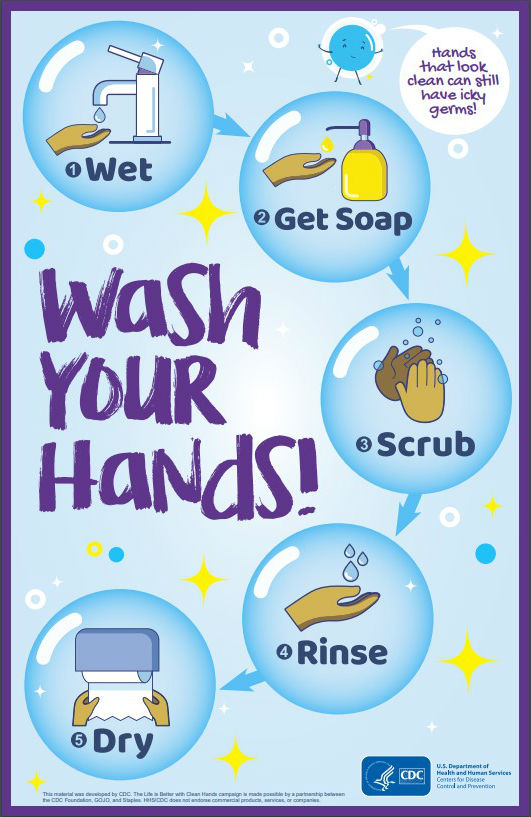
- Fact sheets and posters in 12 different languages
- Boston Case Numbers
- COVID-19 Testing Guidance
- Coping with stress from COVID-19, available in 12 languages
For more information, call the Mayor's Healthline at 617-534-5050 or Toll-Free: 1-800-847-0710
Children, Youth & Families
Please find FAQs about pregnancy, childbirth, breastfeeding, and caring for young children by clicking on this link. The CDC also provides guides for how to get your household ready to prevent the spread of COVID-19 as well as posters on handwashing for children and teens.
Talking to Your Kids about COVID-19
Need help talking to your kids about COVID-19? Staff at the National Public Radio used interviews from various public health and social work experts to create a comic about what kids may want to know. You can see a snippet below:
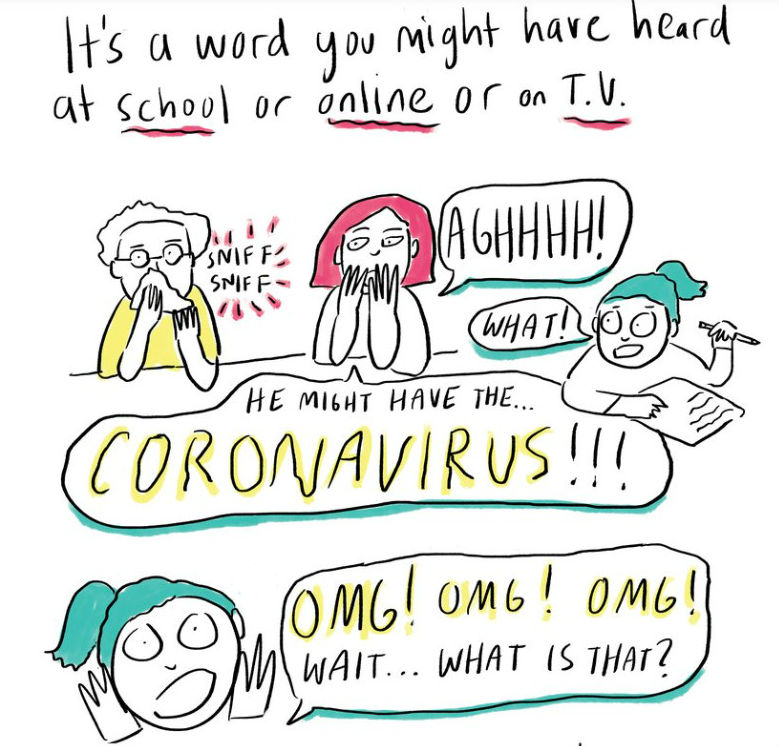
Mental Health
The terms outbreak, epidemic, global health emergency, and quarantine often can be trigger words for many people creating anxiety, depression, fear, and distrust.
The Substance Abuse and Mental Health Services Administration (SAMHSA) created a Coping with Stress During Infectious Disease Outbreaks fact sheet that describes common signs of stress, how to recognize when to get help, and advice for coping.
- Guidance for opioid treatment programs, opens a new window
- Tips for taking care of your behavioral health, opens a new window
The CDC also includes guidance for how to manage stress, anxiety, and fear during the COVID-19 outbreak. It offers:
- Tips for coping
- Information for parents on how to help children and teens feel supported
- Advice for responders to reduce secondary traumatic stress (STS) reactions
- Guidance for people living in or being released from quarantine.
The Massachusetts chapter for the National Alliance on Mental Illness includes a resource list of online and call-in options for peer, family, and clinical support for mental health and substance use.
Beware of scams!
The U.S. Department of Health and Human Services Office of Inspector General has a dedicated page listing potential scams and fraud schemes related to COVID-19. Improve your cyber security by reading the World Health Organization’s information and tips.
The Federal Trade Commission has a resource list of COVID-19 advice for consumers, including tips for avoiding coronavirus scams and fraud. These resources are available in multiple languages.


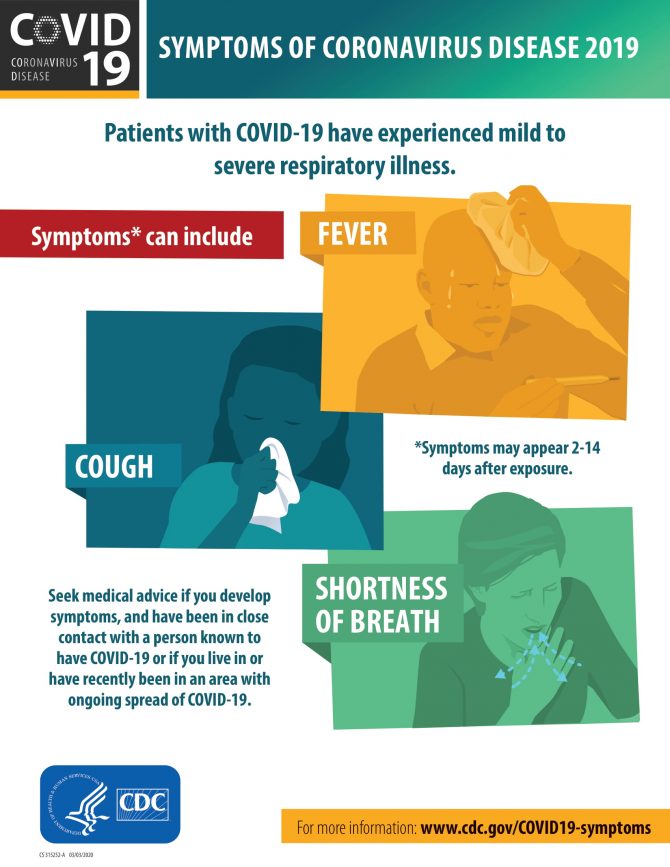
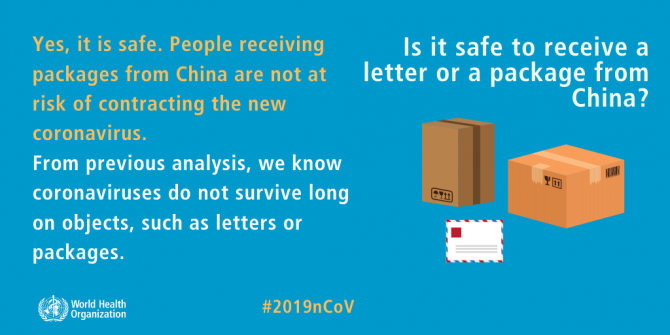

Add a comment to: Coronavirus (COVID-19) Resources